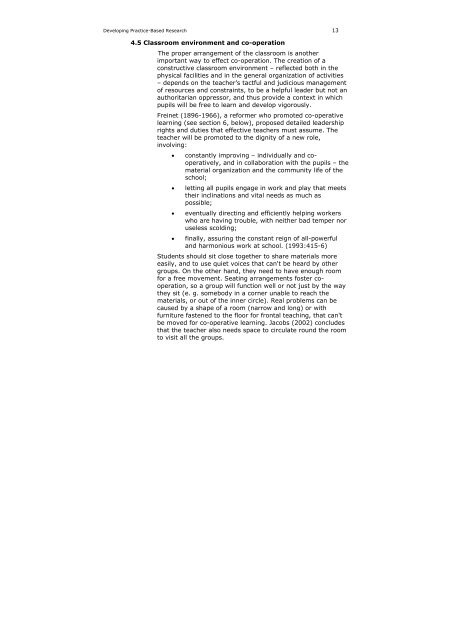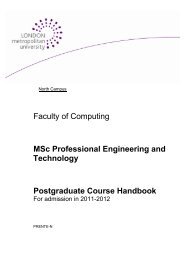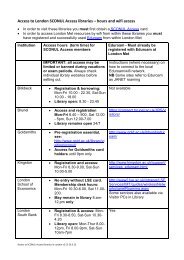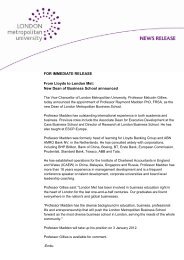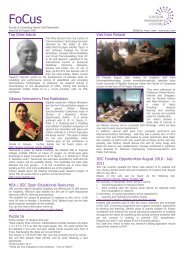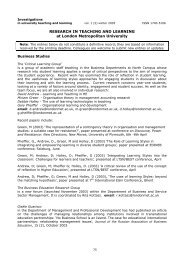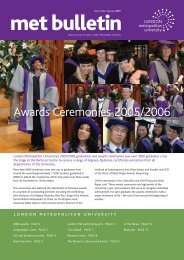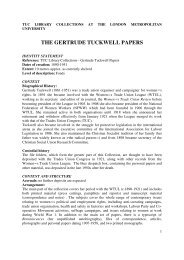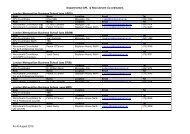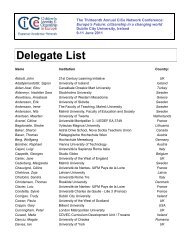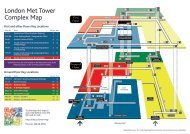Researching citizenship: - London Metropolitan University
Researching citizenship: - London Metropolitan University
Researching citizenship: - London Metropolitan University
Create successful ePaper yourself
Turn your PDF publications into a flip-book with our unique Google optimized e-Paper software.
Developing Practice-Based Research 13<br />
4.5 Classroom environment and co-operation<br />
The proper arrangement of the classroom is another<br />
important way to effect co-operation. The creation of a<br />
constructive classroom environment – reflected both in the<br />
physical facilities and in the general organization of activities<br />
– depends on the teacher’s tactful and judicious management<br />
of resources and constraints, to be a helpful leader but not an<br />
authoritarian oppressor, and thus provide a context in which<br />
pupils will be free to learn and develop vigorously.<br />
Freinet (1896-1966), a reformer who promoted co-operative<br />
learning (see section 6, below), proposed detailed leadership<br />
rights and duties that effective teachers must assume. The<br />
teacher will be promoted to the dignity of a new role,<br />
involving:<br />
• constantly improving – individually and cooperatively,<br />
and in collaboration with the pupils – the<br />
material organization and the community life of the<br />
school;<br />
• letting all pupils engage in work and play that meets<br />
their inclinations and vital needs as much as<br />
possible;<br />
• eventually directing and efficiently helping workers<br />
who are having trouble, with neither bad temper nor<br />
useless scolding;<br />
• finally, assuring the constant reign of all-powerful<br />
and harmonious work at school. (1993:415-6)<br />
Students should sit close together to share materials more<br />
easily, and to use quiet voices that can't be heard by other<br />
groups. On the other hand, they need to have enough room<br />
for a free movement. Seating arrangements foster cooperation,<br />
so a group will function well or not just by the way<br />
they sit (e. g. somebody in a corner unable to reach the<br />
materials, or out of the inner circle). Real problems can be<br />
caused by a shape of a room (narrow and long) or with<br />
furniture fastened to the floor for frontal teaching, that can't<br />
be moved for co-operative learning. Jacobs (2002) concludes<br />
that the teacher also needs space to circulate round the room<br />
to visit all the groups.


